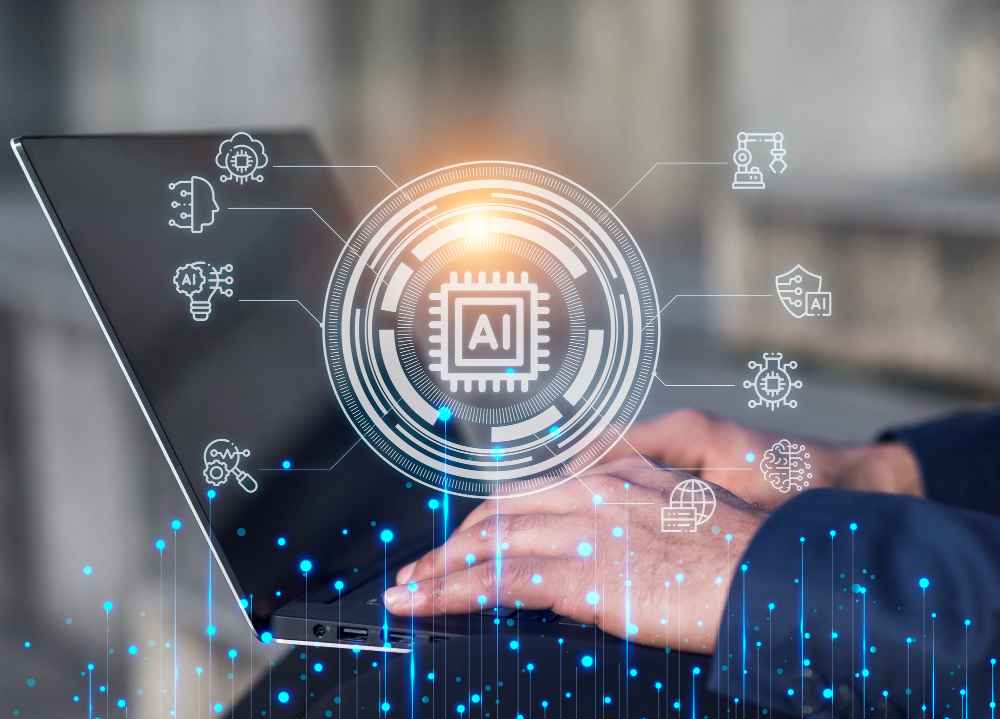In the 21st century, the integration of artificial intelligence (AI) into various aspects of our lives has been transformative, and education is no exception. These days computers and smart machines have become integral parts of our daily lives, reshaping various aspects of how we live and work. Among the many domains undergoing significant transformation, education stands out as a frontier where these technological advancements are making a profound impact.
AI, or Artificial Intelligence, refers to machines or computers that can do tasks that usually need human intelligence. It’s like teaching machines to think and learn on their own, so they can do things smartly without human help.
Good Things about AI in Education:
- Learning that Fits You: Imagine if your school lessons could be just right for you. AI helps make learning personal. If you’re good at something, you can move ahead faster. If you find something tricky, the computer can give you extra help. It’s like having a learning buddy that understands how you learn best.
- Fun and Interactive Lessons: AI helps teachers make lessons more interesting. It can create cool games and activities to make learning fun. Imagine learning math by playing a game or going on a virtual adventure. AI makes that possible!
- Helping Teachers with Boring Tasks: Teachers have a lot of work, like grading papers and keeping records. AI can do some of these tasks, so teachers have more time for teaching and helping students. It’s like having a helper to take care of the boring stuff.
- Learning from Anywhere: With AI, you can learn from anywhere – not just in a classroom. Even if you live far away or in a different country, you can still learn using a computer. AI helps us connect with education no matter where we are.
Challenges Posed by AI in Education
- Equity and Access: While AI holds promise for global accessibility, issues of equity and access must be addressed. Not all students have equal access to technology, potentially exacerbating educational inequalities. Ensuring that AI benefits all students requires proactive measures to bridge the digital divide.
- Data Privacy Concerns: The extensive use of AI involves collecting and analyzing large amounts of sensitive student data. Data privacy concerns arise regarding how this information is handled, stored, and shared. Striking a balance between leveraging AI for educational insights and safeguarding student privacy is a crucial challenge.
- Teacher Training and Adaptation: Integrating AI into education necessitates a paradigm shift for educators. Teachers need adequate training to effectively use AI tools and interpret the insights they provide. The challenge lies in ensuring that educators are well-prepared to harness the potential of AI without feeling overwhelmed or marginalized.
- Ethical Considerations: As AI becomes more ingrained in education, ethical questions arise. Issues such as algorithmic bias, accountability in decision-making processes, and the potential for reinforcing existing inequalities need careful consideration. Developing ethical guidelines and frameworks for the use of AI in education is imperative.
- Overreliance on Technology: While AI enhances the learning experience, there is a risk of overreliance on technology at the expense of essential human elements in education. Striking a balance between technological innovation and maintaining the human connection in education is a challenge that must be navigated.
The impact of artificial intelligence on education is both profound and multifaceted. The opportunities it presents, from personalized learning to data-driven insights, have the potential to revolutionize the way we approach education. However, the challenges, including issues of equity, data privacy, teacher training, and ethical considerations, must be addressed to ensure that the benefits of AI are realized inclusively and responsibly.
As we continue to harness the power of AI in education, it is essential to adopt a thoughtful and informed approach, prioritizing the well-being and development of students while navigating the evolving landscape of learning in the digital age.






